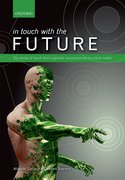A call for oral history bloggers
By Caitlin Tyler-Richards
Over the past few months, the Oral History Review has become rather demanding. In February, we asked readers to experiment with the short form article. A few weeks ago, our upcoming interim editor Dr. Stephanie Gilmore sent out a call for papers for our special Winter/Spring 2016 issue, “Listening to and for LGBTQ Lives.” Now, we’d like you to also take over our OUPBlog posting duties.

















